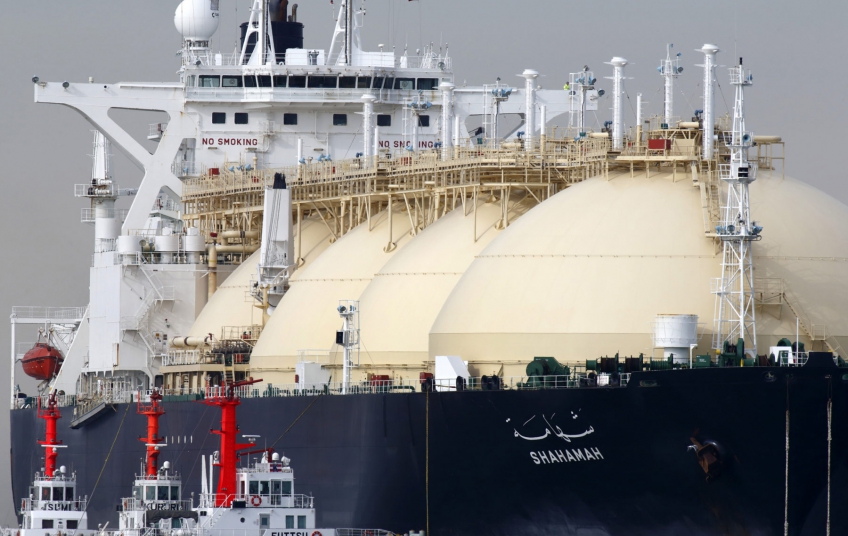They say the mark of a good salesman is the ability to sell a customer something he doesn’t need. So full marks for effort to US Ambassador to Germany Richard Grenell and his colleague in the US Department of Energy, Dan Brouillette.
In their opinion piece, the pair offers up a shameless diplomatic sales pitch to convince Germany to import more liquefied natural gas (LNG) from the US. Germany can become “more energy secure,” they say, and support “energy diversification efforts” at the same time as strengthening the transatlantic alliance.
But of course it isn’t really about selling more US shale gas, energy security or the transatlantic alliance; it’s a veiled warning that Germany should reject Russian gas. Donald Trump believes Germany is “captive” to Russian energy supplies and wants the country to wean itself off Siberian taps.
Angela Merkel disagrees, but as a sop in the ongoing trade dispute between the EU and US, she has shown a sudden interest in US LNG. The chancellor sees it as a relatively cheap and easy way to placate the erratic US president while bigger issues are hammered out. There’s just one problem: Germany doesn’t want or need US LNG.
Lies, flaming lies
First, as the American pair acknowledge, Germany has no LNG infrastructure. Its imported natural gas arrives entirely by pipeline, from Russia, Norway and the Netherlands. Under pressure from the US, Berlin is currently considering building an LNG terminal on its North Sea coast, but critics have labeled the project a white elephant. Private investment has failed to match government subsidies, and no one thinks a German terminal will ever make a profit.
Second, Germany plans to be “almost completely decarbonized” by 2050. Everyone agrees this is ambitious, and that natural gas is a good intermediary source on the way to zero emissions. But even so, what’s the point of investing in an entirely new energy supply network if it could be redundant in just 32 years? Especially as a cheaper alternative already exists.
Cynics might say the same thing could be said of Nord Stream 2, the new gas pipeline running under the Baltic Sea from Russia to Germany. That’s true, but don’t forget that it’s not called Nord Stream 2 for nothing: Nord Stream “1” has been operating since 2011, and the new pipes will use much of its existing infrastructure. The project cost of €9.5 billion would likely be cheap compared to the cost of developing LNG.
Third, US LNG would have to be shipped in. This means a steady stream of expensive, polluting tankers crisscrossing the Atlantic for years to come, despite the existence of several relatively cheap and less environmentally offensive pipelines. Not a good look for “Green” Germany.
Fourth, Germany has little need for US LNG. Granted, it would diversify its energy supply, but for what purpose? Mr. Grenell and Mr. Brouillette write that US LNG would “reduce the overreliance on a single supplier of natural gas,” a comment obviously aimed at Russia. But Germany has long pointed out that it isn’t over-reliant on any one gas source. Natural gas made up 22.6 percent of its energy mix in 2016, down about 7 percent on 2006. In 2015 (the last figures available), 35 percent of gas imports came from Russia, 34 percent from Norway and 29 percent from the Netherlands. That means Russian gas accounts for only around 6 percent of Germany’s energy needs.
Finally, would swapping one gas supplier for another make Germany’s energy supply more secure? Certainly, Russia has no qualms about using its vast gas reserves as a political tool (just ask the EU and Ukraine). But in today’s unsettled geopolitical climate, and with Mr. Trump espousing an “America First” policy and seemingly happy to start trade wars, would US gas come with any less baggage?
No amount of hard-selling is likely to convince Germany it’s worth the risk.





